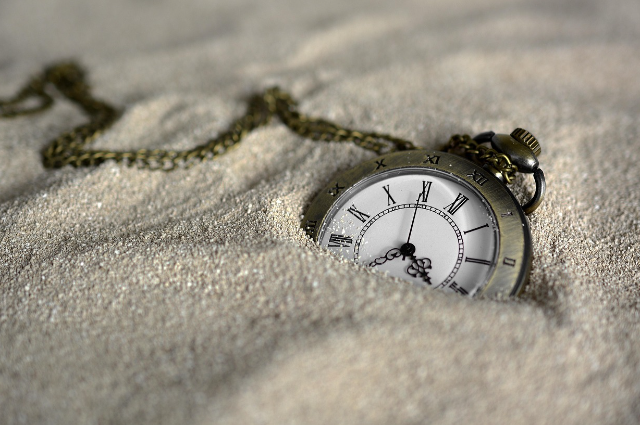
Living in a Clock That Won’t Slow Down
Time has become the most unstable currency of modern life. For young people today, the passing of time is not neutral; it is heavy, anxious and always slipping. Even on days when nothing urgent happens, there is a sense of falling behind, a fear that life is moving too fast, a quiet panic that there is never enough time to do, learn, earn, and become. This is time anxiety — not fear of clocks, but fear of the self running out of chances. It is not loud, but constant. Not dramatic, but exhausting. It makes a twenty-year-old feel late, a twenty-four-year-old feel old, a twenty-seven-year-old feel like the window is closing.
Time anxiety is not caused by the shortage of time, but by the pressure to optimise it. The world demands that every hour should be fruitful and every year should be worthwhile, and every milestone should be met punctually. The clock is no longer on the wall; it lives inside the nervous system. And young people today are not just managing schedules — they are negotiating worth.
The Psychology of Feeling Late — When Time Becomes a Threat
The present time anxiety is based on how the brain responds to uncertainty. The mind is programmed to be afraid of anything unpredictable, and the schedule of our lives, careers, relationships, and success, all this has been more unpredictable than ever. Young adults do not fear failure as much as they fear “failing too late”. Cognitive psychologists describe this as anticipatory stress: the body remains in a subtle state of threat even when nothing is actively wrong. You are not panicking, just uneasy. Not overwhelmed, just restless. Not lost, but not arriving anywhere.
This fear is self-reinforcing. The later the person feels he or she is, the more all the decisions appear to be critical, rushed, or irreversible. Even rest is not comfortable since the mind whispers: you could be doing more. Time anxiety is thus not a stressor but a lens — everything looks urgent through it. Life becomes a sprint without a finish line.
Productivity Culture — When Time Turns Into a Performance
Young people today have grown up in an economy where productivity equals identity. Free time is not leisure; it is guilt. Doing nothing feels like wasting potential. Rest feels irresponsible. Even hobbies are expected to become income streams, side hustles, or portfolios. Productivity is no longer a behaviour; it is a moral value. And when time becomes a measure of worth, every hour invites self-judgment.
This pressure is increasing in the digital world. Social media gives the illusion of parallel realities in which all your age group seem to be doing better: someone making more, someone getting married earlier, someone travelling more, someone trying to work out life. The consequence is a perverse perception of time - the mind starts to experience a lag in time at a time when things are not in flux. Performance is productivity, and time is an audience that you have to impress all the time.
The Emotional Cost of Time Scarcity -The Slow Panic of Modern Living
Time anxiety destroys people in a more profound way: emotionally. Individuals cease being happy at the moment because the mind is already rushing towards the future. Happiness becomes conditional: I’ll feel okay when I achieve this milestone. But milestones keep moving, and relief never arrives. This creates a psychological loop where individuals experience their life as a countdown instead of an unfolding.
Clinical psychologists observe rising symptoms of “silent panic”—a condition where anxiety does not appear as fear but as tiredness, numbness, irritability, and intense self-comparison. Time anxiety also distorts memory; people remember failures more vividly because their brain interprets them as “lost time”. This makes even neutral experiences feel heavier. Life becomes a collection of deadlines rather than experiences.
The Cultural Timeline Collapse - When Milestones Lose Their Meaning
The previous generations were on a very predictable schedule: school, work, family, and old age. Even when flawed, that structure was a source of emotional stability. The timeline has been broken into pieces today. Professions are volatile, marriages are loose, cities are hectic, and aspirations are in flux. Lacking a cultural template, the young adults are forced to make their own way, and liberty without any direction is soon changed into fear.
It has created a psychological vacuum: individuals are aware of the fact that they can pick anything, yet they are not aware anymore when it is possible. When to feel comfortable, when to feel successful, when to feel grown up. The time is fluid and ambiguous, and hence stressful. Youths are under pressure from the schedules of their families, what society wants, and what social media shows on its highlight reel at the same time. It is not a fear of ageing, but a fear of not being able to know whether they are developing in the right direction.
Rewriting Our Relationship With Time
Time anxiety does not mean people are weak; it means the world has changed faster than the human mind can adapt. To heal it, the solution is not to slow down the clock but to soften our grip on it. Life cannot be lived as a race without creating emotional poverty. The more we measure time, the less we inhabit it. The more we chase milestones, the less we live the moments that build them.
Reclaiming time begins with accepting that life unfolds unevenly for everyone and that meaning is not tied to speed. When we shift from racing against time to moving with it, the nervous system relaxes. The pressure dissolves. And time, once an enemy, becomes a companion again. Young people don’t need more hours; they need a gentler relationship with the ones they already have.
